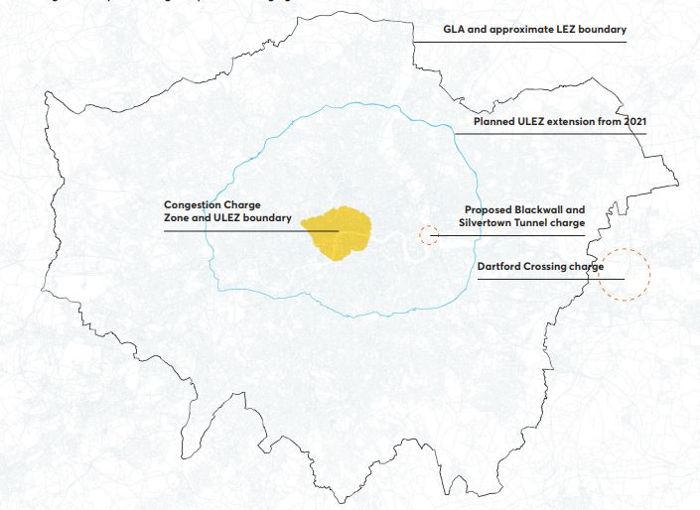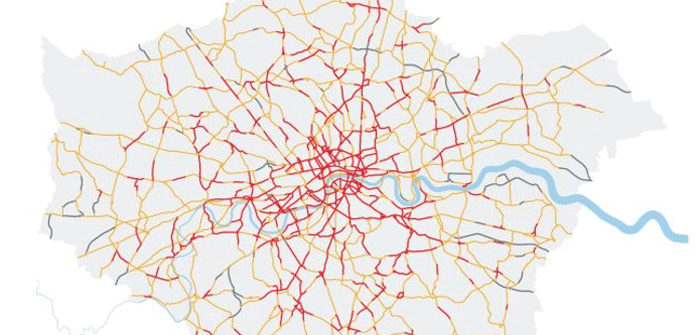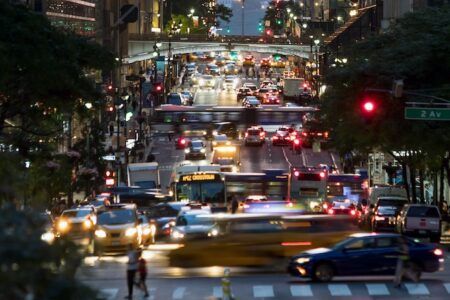The Center for London think-tank has released a new report that says the UK capital needs a more sophisticated approach to road user charging (RUC) that reflects the true impact of individual vehicle journeys, rather than collecting fees en masse.
Sponsored by the Arup consultancy, tolling company Emovis, Mastercard and the C40 Cities Climate Leadership Group, the report, Green Light: Next Generation Road User Charging for a Healthier, More Liveable, London, calls for the city to move toward an innovative new RUC scheme that charges drivers on a per-mile basis.
Costs would vary by vehicle emissions, local levels of congestion and pollution, and availability of public transportation alternatives, with prices that would be set before the journey begins. The scheme would be integrated with London’s wider transportation system via a new app and digital platform, which the report proposes would be run by Transport for London (TfL). The scheme, which the report calls ‘City Move’, would provide Londoners with more choice about how they travel around the city.
A form of Mobility as a Service (MaaS), City Move would use the latest technology to give Londoners all their travel information in one place, allowing them to compare, plan and pay for journeys. Drivers, for example, would be presented with costs and impacts of using their vehicle versus alternative modes of transportation.
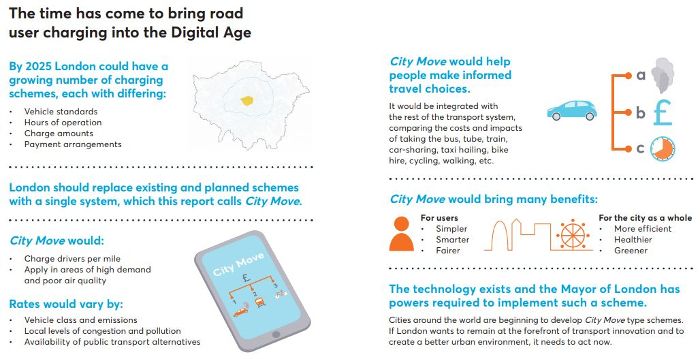
The report emphasizes the need to update the existing system, noting that while the new Ultra Low Emission Zone (ULEZ) is a much-needed environmental measure, it comes on top of the existing Congestion Charge, and proposed charges for the new Silvertown and Blackwall tunnels.
This means that by 2025, London could have at least five separate RUC schemes, each featuring different vehicle standards, hours of operation, charge amounts and payment arrangements, creating a confusing system for drivers to navigate.
The report says the benefits of the City Move app and connected RUC scheme are:
- Fairer than the Congestion Charge and ULEZ – rather than charging drivers a flat daily rate, the scheme would consider the impact of individual journeys in terms of journey length, road surface damage, economic costs and environmental damage;
- Tackle city-wide air pollution – charging drivers on the most congested roads could reduce total emissions and air pollution levels across the whole of London by up to a fifth (over and above the anticipated impact of the current ULEZ);
- Better experience on the roads – the scheme would reduce congestion and allow investment in roads maintenance;
- Better for business – the scheme could reduce traffic overall, reducing delays and helping businesses make efficiency savings;
- A healthier, more liveable city – City Move would promote the use of public transporation and active travel, encouraging more active lifestyles.
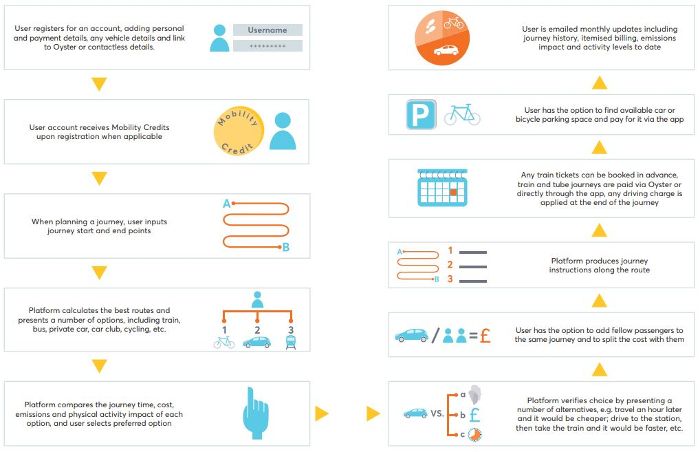 “The Congestion Charge was pioneering when it was introduced 16 years ago, and the ULEZ is desperately needed to address a growing air quality crisis. But new technologies are rapidly transforming the way people travel, and how they pay for their journeys,” explained Silviya Barrett, Center for London’s research manager.
“The Congestion Charge was pioneering when it was introduced 16 years ago, and the ULEZ is desperately needed to address a growing air quality crisis. But new technologies are rapidly transforming the way people travel, and how they pay for their journeys,” explained Silviya Barrett, Center for London’s research manager.
“The Mayor should move toward embracing new technology and create a simpler and smarter approach to road user charging. This would be both fairer for drivers and better for the city overall.”
